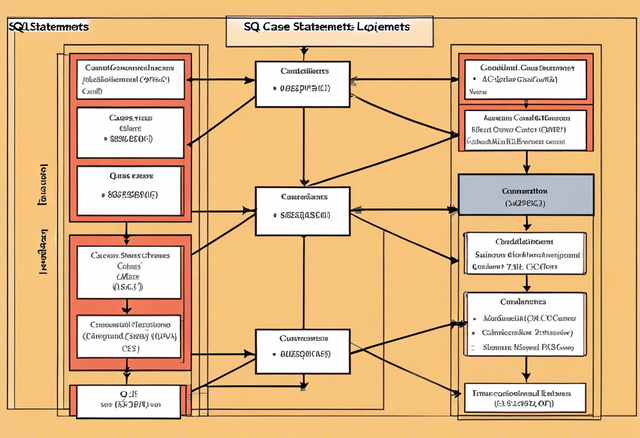SQL Case Statements: Conditional Logic in Queries
 Dishant Singh
Dishant Singh
SQL Case Statements: Conditional Logic in Queries
SQL Case Statements: Conditional Logic in Queries
In the realm of SQL, case statements play a pivotal role in enabling us to execute conditional logic within our queries. They essentially act as a powerful tool for making decisions based on the values present in your database tables. Let's delve into the world of SQL case statements, unveiling their capabilities and exploring how they can be used to enhance your SQL prowess.
Understanding the Fundamentals of Case Statements
Imagine you're sifting through a database of customer data. You want to categorize customers into different segments based on their order values. This is where case statements shine. They allow you to specify different outcomes for specific conditions, injecting dynamism into your queries.
Syntax of Case Statements
The basic syntax of a case statement in SQL is as straightforward as it gets: ```sql CASE WHEN condition1 THEN result1 WHEN condition2 THEN result2 ... ELSE result_else END ```
Let's break down this syntax: * **CASE:** The keyword that initiates the case statement. * **WHEN condition1 THEN result1:** The first condition to be evaluated. If condition1 is true, result1 is returned. * **WHEN condition2 THEN result2:** The second condition to be evaluated. If condition1 is false but condition2 is true, result2 is returned. * **...:** This indicates that you can have multiple WHEN clauses to evaluate various conditions. * **ELSE result_else:** If none of the preceding WHEN conditions are met, result_else is returned. * **END:** The keyword that closes the case statement.
Simple Case Statement Example
Let's say you have a table named 'products' with columns like 'product_id', 'product_name', and 'price'. You want to assign a 'category' label based on the price:
In this example, we're using a case statement to assign categories based on the 'price' column. If the price is greater than 500, the category is 'Expensive'. If the price falls between 100 and 500, it's 'Mid-Range'; otherwise, it's 'Budget'.
Exploring Advanced Case Statement Applications
Case statements aren't just for simple categorization. They have a vast array of applications that can unlock powerful functionality within your SQL queries.
1. Case Statements with Multiple Conditions
You can combine multiple conditions within a single WHEN clause using logical operators like AND and OR. For instance, let's say you want to categorize customers based on both their order value and their location:
Here, we're categorizing customers based on a combination of their order value and location. For example, if a customer's order value is greater than $1000 and they are located in the USA, they are classified as a 'High-Value US Customer'.
2. Case Statements with Subqueries
The power of case statements extends to incorporating subqueries. You can use subqueries within a case statement to retrieve data from other tables and base your conditions on that data.
In this example, we're determining the 'customer_status' based on whether a customer has any orders in the 'orders' table. The subquery within the case statement checks for the existence of an order associated with each customer.
3. Case Statements for Calculating Values
Case statements aren't limited to just returning text values. You can use them to perform calculations as well.
Here, a case statement is used to apply different discounts based on the product's price. This allows you to create dynamic discounts based on specific conditions.
The Power of Case Statements
Case statements are a versatile tool for making your SQL queries more expressive and dynamic. They allow you to:
* **Categorize data:** Group data into meaningful segments based on various conditions. * **Apply conditional logic:** Execute different actions based on specific criteria. * **Enhance readability:** Making your SQL code more understandable by breaking down complex logic into smaller, manageable pieces. * **Simplify complex queries:** Case statements can help consolidate multiple IF-THEN checks into a single concise statement, improving code maintainability.
Conclusion: Case Statements in Action
Mastering SQL case statements empowers you to write more sophisticated and adaptable queries. Whether you're segmenting customers, applying conditional pricing rules, or just enhancing the readability of your SQL code, case statements are a valuable addition to your SQL arsenal.
As you delve deeper into the world of SQL, remember that case statements are a fundamental building block for crafting elegant and powerful queries. Embrace their flexibility, and watch your SQL skills soar to new heights!
Subscribe to my newsletter
Read articles from Dishant Singh directly inside your inbox. Subscribe to the newsletter, and don't miss out.
Written by
Dishant Singh
Dishant Singh
Hello,I am a full stack web developer known for transforming ideas into stunning, interactive digital experiences. With a rich portfolio of successful projects, I specialize in creating visually appealing and highly functional websites.